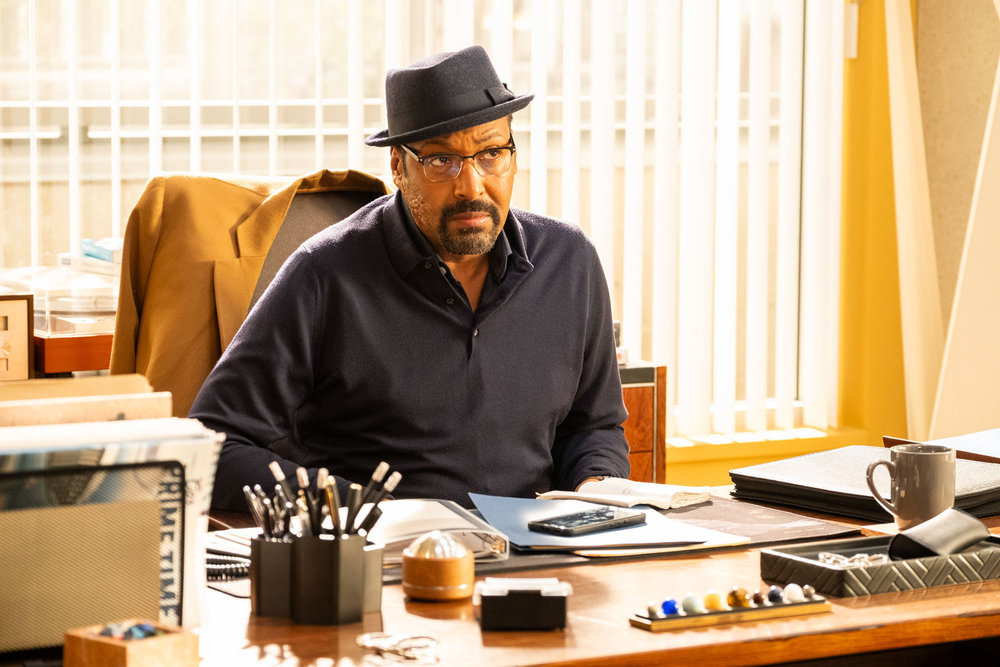Television is one of the most powerful mediums available for social change.
Through characters and stories we love, we can help heal the divide and show people that we are all human and all want similar things.
That may seem like small comfort at a time when racism, homo/transphobia, sexism, and anti-Semitism are at an all-time high. Even so, let’s celebrate characters changing the narrative and helping make a better, less prejudiced world.
FBI’s Omar Adom “O.A.” Zidan Is The First Egyptian-Born Lead Character on A Police Procedural


When I think about characters changing the narrative, O.A. is always the first one that comes to mind.
Unfortunately, many peace-loving Muslims get blamed for terrorist activity related to conflict in the Middle East, and that’s been reflected in our television shows for a very long time.
Before O.A. was introduced on FBI Season 1 Episode 1. there were few Muslim characters on TV who were not either guilty of terrorism or being accused of it based on credible evidence.
Sure, Law & Order: SVU had a couple of episodes about Muslim women who were raped and killed because they didn’t subscribe to radical Islam, but guess who was always the culprit? Their Muslim fathers or brothers.
That changed seven seasons ago when O.A. was introduced. He is the first and so far only Middle Eastern-born Muslim character to be a leading man in any show, and he’s also an FBI agent.
His loyalty to the United States is never in doubt. Before becoming a field agent in an office that specializes in counter-terrorism, he served in the Army and did two tours in Iraq that left him with PTSD.


Like so many of our veterans, he has PTSD because of his experiences, though he has kept it under control enough to become one of the best, most trusted agents in the New York Field Office.
We won’t talk about his relationship with Clay on FBI Season 7, which is leading him in the wrong direction because it’s beside the point.
OA is one of the strongest characters who changes the narrative of the division and hatred that encompass the United States and the world.
It’s sad that even within the confines of the fictional FBI on TV, OA sometimes has to prove that he’s equally loyal to his country or equally capable of being objective when the targets of investigations are Muslim extremists.
Still, he defies stereotypes simply by continuing to exist and offers some much-needed representation.
Watch FBI Online
Heartstopper’s Elle Argent Is One Of The Characters Changing The Narrative About Transgender Women Of Color


LGBTQ+ representation on TV is in decline precisely when we need it not to be, and that’s doubly true for the transgender community.
It’s especially important to showcase Black transgender women and other transgender women of color who experience the intersections of transphobia, racism, and misogyny.
I’d like there to be more American transgender people of all races and gender identities on TV, but in the meantime, the UK series Heartstopper‘s Elle is my favorite example of how transgender characters are changing the narrative about who they are.
Elle is a transgender teenager who is mostly accepted as the woman she is.


Throughout Heartstopper’s three seasons, she has grown from a shy loner who was afraid cis girls in her new school wouldn’t accept her to an out and proud transgender artist who has friends both in and outside of the transgender community.
Sometimes, Heartstopper gets criticized for showing LGBTQ+ kids being happy and mostly free of hate-fueled drama, but we need stories like these.
We need characters like Elle who are supported by their parents and friends and who want to be seen as more than a statistic or a label.
Elle sends the message that you CAN be happy if you’re transgender despite all the hate in the world.
Transgender kids have an unacceptably high suicide rate. They NEED hope. Elle gives it.
Yes, she was upset during Heartstopper Season 3 when a podcast host asked her for an interview about her art and then bombarded her with questions about whether trans girls should be allowed to use the women’s restroom and other transphobic nonsense.
She struggled with that a bit and needed her friends’ help to overcome the depression and keep moving on. But even that was a positive message, showing that in reality, it doesn’t HAVE to be over because of setbacks like this.
Watch Heartstopper Online
Good Trouble’s Davia Moss Explored How Fatphobia Affects Plus-Sized People (And Formerly Plus-Sized People)


Good Trouble is no longer on, but it deserves an honorable mention anyway.
This show did so much good in terms of characters changing the narrative around all sorts of identities. I could fill this list with almost everybody on it.
I chose Davia because there is not enough discussion of plus-sized women and the prejudices they face on TV.
The body-size movement began when Camryn Manheim first came onto the scene as a proudly plus-sized actress who did not intend to lose weight to get roles, but Davia is the most modern example I can think of.


Davia experienced body shaming both as a plus-size person and later when she lost weight.
When formerly plus-sized people become not-so-plus-sized, they experience a different flavor of prejudice, with people constantly telling them how good they look and commenting on their weight loss without knowing the details.
It’s annoying and, in some cases, upsetting if the person loses weight because they have a serious illness that they don’t want to broadcast to the world.
People should not be commenting on others’ body size, period, especially strangers, and Davia demonstrated why that is hurtful whether or not you’re a plus-sized person.
Additionally, she demonstrated that there is a lot more to a person than how big they are or aren’t. She was one of the most well-rounded characters on Good Trouble, with a lot of flaws but a big heart and the intention to help others.
Watch Good Trouble Online
The Irrational’s Alec Mercer Is A Black Role Model And Trauma Survivor


The Irrational is busy offering characters changing the narrative all over the place. It was a hard choice between Alec and his sister, Kylie, who is a strong representative of Black queerness.
Alec is one of my favorite characters in television history for many reasons. I find his commitment to rationality over emotion inspiring and his determination to live his life to the fullest despite the trauma he’s suffered even more so.
I’m also stoked about Alec because he is a Black college professor and consultant to the FBI.
The consultant part has been done before, but we all know that Black men are underrepresented in teaching across the board, on TV, and in reality.


Alec is a successful Black man who teaches and inspires others.
His college classroom is always full, and he uses interesting and creative experiments to make points about neuroscience, which isn’t always the easiest topic to understand.
Alec is also a trauma survivor and is changing the narrative on that, too.
Like many survivors, he is very strong in some areas of his life and not very functional in others.
It’s doubly powerful to have him as a representative of trauma survivorship because he knows the human brain inside and out and understands the ways that he sometimes fails him, yet he is powerless to do anything about it when flashbacks or other aspects of trauma hit him.
Watch The Irrational Online
Found’s Bella Dismantles Stereotypes Around Nonverbal People


Trauma can cause people to become selectively mute. That means that they are unable to speak in some or all situations.
That’s not usually what trauma looks like on TV, but Found is different.
This season contains flashbacks of Bella (who chose the name Lacey as an adult) struggling as a seven-year-old child who had recently escaped Sir’s clutches.
Among other things, Bella does not speak.
I love this story because I am passionate about confronting and eliminating the ableist belief that verbal ability has ANYTHING to do with intelligence or competence.


Bella communicates non-verbally very well.
Her facial expressions and other body language are so perfect that an autistic person like me, who struggles with interpreting body language, knows exactly what she is feeling at any given moment.
She can still read, write, draw, and think. She simply cannot speak.
Bella grows up to be a woman who has reclaimed her voice and refused to lose it again, but that doesn’t change the fact that she is one of a very small number of characters changing the narrative around nonverbal children, if not the only one.
Watch Found Online
Brilliant Minds’ Oliver Wolf Is The Best Of Several Characters Changing The Narrative Around Neurodivergence


There are many more autistic and other neurodivergent characters in TV Land than there used to be, but that doesn’t mean there’s a hell of a lot of accurate representation.
Brilliant Minds‘ Oliver Wolf is the best neurodivergent representative. He is a doctor who is respected by some and seen as a nuisance by others.
He has face blindness, which is a neurodivergent condition in which a person cannot recognize people by looking at their faces.
This is far different from the usual neurodivergent character. There is a lot more to neurodivergence than autism and ADHD, not that those conditions are generally portrayed properly, either.
Wolf’s neurodivergent traits are carefully interwoven with his past trauma and his fear of intimacy because of that trauma.
That’s also an important distinction because far too many shows are interested in the question of “Will this person succeed even though they are neurodivergent?” rather than showing the character as being more than a diagnosis.


Wolf does double-duty representation-wise because he is also gay.
Neither of these identities is centered to the degree that we lose sight of him as a unique, fascinating individual who has compensated for his difficulties as best as he can to create enormous professional success.
I also appreciate how his sexual orientation and neurodivergence likely contributed to his trauma.
No one could predict his dad’s mental illness and subsequent death, but Wolf would have experienced some trauma even if those things hadn’t happened because of who he is and how he sees the world.
Watch Brilliant Minds Online
Blue Bloods’ Jamie Reagan Demonstrates That Men Can Be Empathetic and Sensitive


At first glance, it might seem strange to choose a Blue Bloods character as an example of changing the narrative.
Blue Bloods skews more conservative on the political spectrum than most shows, so an argument can be made that it changes the narrative around conservatives all being evil and selfish, which is also important in these divided times.
Jamie has always been my favorite, with Henry as a close second. He not only went into police work for the right reasons but is especially good at building rapport with witnesses and suspects.
In the early seasons, Jamie demonstrated more than once that he had a gift for helping talk down people who were having a mental health crisis.


One moment that sticks in my mind is when an autistic man began causing trouble at a store, throwing things around and generally being belligerent, and Jamie was able to peacefully subdue him by using his understanding of the man’s thought processes.
This was a man with limited verbal skills who respected Jamie and wanted to be like him, so Jamie got him to put his hands behind his head by modeling it, and the man cooperated.
He was arrested without the use of force, which would not have happened had Jamie not been there.
Jamie uses this type of sensitivity and empathy on the job all the time, though, in later seasons, he is in a higher position and doesn’t work with the public as much.
His empathy changes the narrative about what it means to be masculine and demonstrates that cops don’t HAVE to be modern-day cowboys.
Watch Blue Bloods Online
Law & Order: Organized Crime’s Jet Slootmaekers Shoots Down Stereotypes About Female Coders


Jet has been my favorite on Law & Order: Organized Crime since it began.
Jet is a computer expert, but she is far from a nerd.
She’s smart, sardonic, and seemingly fearless. She’s a cop and a computer expert, and she knows how to use a gun better than almost anybody.
In short, Jet would fit in on any modern Western… except she also knows computers.


Jet’s one weakness, if you can call it that, is that she struggles in relationships.
That’s understandable. Women who are as bright and assertive as her often have a hard time finding love, and in her case, she’s too afraid of commitment for it to work.
That’s worse in the later seasons because Jet falls hard for two men who die. That’ll screw anyone up.
Still, few female characters change the narrative of what women in traditionally masculine careers are like as much as Jet does.
Watch Law & Order: Organized Crime Online
Homicide: Life On The Street’s Tim Bayliss Is Still One of The Best Representatives of Bisexual Men 30 Years Later


Look, this might be an old show, but Homicide: Life on The Street is on Peacock, so you can still watch it.
It also has the first bisexual male character on TV. Starting with Homicide: Life On The Street Season 6, Bayliss explored his sexuality after realizing he was attracted to a male suspect.
Bayliss tried dating both men and women, struggled with the question of whether he was straight or gay, and ultimately concluded he was neither.
That was radical then and equally radical today when we still have people insisting that bi characters are really in-the-closet gay characters.
Homicide’s final season wasn’t worth watching in most respects, but Bayliss’s determination to be openly bisexual, even though the police department thought that was “unprofessional,” made up for a lot of other non-interesting stories.
Watch Homicide: Life On The Street Online
Chicago Med’s Hannah Asher Changes The Narrative On Drug Addiction


Drug addiction stories are a dime a dozen on TV.
Far too often, though, it’s treated in a stereotypical manner. Whether someone is addicted to alcohol or hard drugs, the most popular storyline for them is the relapse story, followed by the overzealous AA meeting attendee story.
Addiction is a far more complicated issue than that, but you wouldn’t know it from most TV shows.
Chicago Med‘s Hannah Asher is different.


Hannah recently went through something that could have easily triggered a relapse.
She lost a patient soon after the baby was delivered and blamed herself. Guilt, shame, and pain are powerful emotions that often drive people back toward addictive behavior.
Add in the fact that Hannah’s relationship with her new boyfriend was falling apart, and there was a chance she could lose her job because Lenox thought that it was unnecessary to employ a full-time OBGYN, and you have a recipe for spiraling out of control.
However, Hannah didn’t relapse. There aren’t any better examples of characters changing the narrative around addiction than that!
Hannah’s addiction is part of who she is but doesn’t define her, and unlike most of the people with addiction issues on TV, she is self-aware enough to realize when she’s at risk and take action to protect herself.
That makes her a role model and dismantles the stereotype that relapses “just happen” and nobody can do anything to prevent them.
Watch Chicago Med Online
Georgie And Mandy’s First Marriage’s Georgie Cooper Dismantles Stereotypes About Country Boys In An Interesting Way


Throughout Young Sheldon, Georgie was depicted as the “stupid” (or at least ignorant) brother.
However, there is a lot more to Georgie than that, and now that he’s gotten his own show (Georgie and Mandy’s First Marriage), it’s easier to see.
Georgie was never book-smart. School wasn’t his thing.
But he has a head for business and is gifted mechanically, skills that were never emphasized when he was growing up in the shadow of his younger brother.


We need characters to change the narrative of what intelligence is.
There are many kids who fall through the cracks because they would shine in trade schools or in the arts but are not academically minded.
This doesn’t mean that people don’t need to learn the basics, but not everyone needs advanced degrees, and that should be okay.
As a bonus, Georgie’s intelligence in areas other than academics also dismantles the idea that Southerners, particularly Southern men, are all idiots, which can only be a good thing in this overly divided country.
Watch Georgie and Mandy’s First Marriage Online


Over to you, TV fanatics!
Who are some of your favorite characters who are changing the narrative about various groups of people?
Hit the comments with your thoughts!






